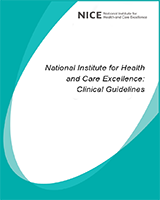From: Evidence review for interventions for chronic hypertension

Evidence review for interventions for chronic hypertension: Hypertension in pregnancy: diagnosis and management: Evidence review A.
NICE Guideline, No. 133.
National Guideline Alliance (UK).
London: National Institute for Health and Care Excellence (NICE); 2019 Jun.
Copyright © NICE 2019.
NCBI Bookshelf. A service of the National Library of Medicine, National Institutes of Health.